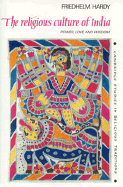Book contents
- Frontmatter
- Contents
- Illustrations
- Preface
- Power: the challenges of the external world
- Love: the rhythms of the interior world
- Wisdom: commuting within one world
- 17 All the valleys filled with corpses
- 18 Strategic initiatives
- 19 Encompassing the galaxies
- 20 The all-pervasive mind
- 21 Striking a balance
- 22 Beyond prosaic words
- 23 Irreducible particulars
- 24 The head in the world
- Notes
- Index
22 - Beyond prosaic words
from Wisdom: commuting within one world
Published online by Cambridge University Press: 09 February 2010
- Frontmatter
- Contents
- Illustrations
- Preface
- Power: the challenges of the external world
- Love: the rhythms of the interior world
- Wisdom: commuting within one world
- 17 All the valleys filled with corpses
- 18 Strategic initiatives
- 19 Encompassing the galaxies
- 20 The all-pervasive mind
- 21 Striking a balance
- 22 Beyond prosaic words
- 23 Irreducible particulars
- 24 The head in the world
- Notes
- Index
Summary
However ‘self-authenticating’ a religious experience may be and however much it may want to enclose itself within its own transcendental bliss, for a number of different reasons it cannot totally write off the world of phenomena. This may be, as we have seen, for reasons of social justification and explanation, of providing a rational exposition and of showing itself to be the most reasonable course of action to take. Or it may be that the causal role of the phenomena in the experience is acknowledged. The human body and mental make-up may yield meditationally gained insights, or a particular constellation of phenomena may suddenly trigger them off, or other persons may be required to convey the initial knowledge necessary for entering the path of meditation. Or finally, it may be that the religious experience itself contains a reference to the cosmos and the world: the realization of a universal soul present in all beings, or the stimulus towards compassion for all beings. Whatever the individual case may be, it raises the issue of a balanced attitude, and also of providing the latter with a theoretical basis.
The previous chapter concentrated on such speculative balancing exercises. It explored how this relationship between the phenomena and the insight into some deeper dimension of theirs found conceptual expression as advaya (on the Buddhist side) and advaita (among the thinkers of the Vedānta tradition).
- Type
- Chapter
- Information
- The Religious Culture of IndiaPower, Love and Wisdom, pp. 479 - 501Publisher: Cambridge University PressPrint publication year: 1994



